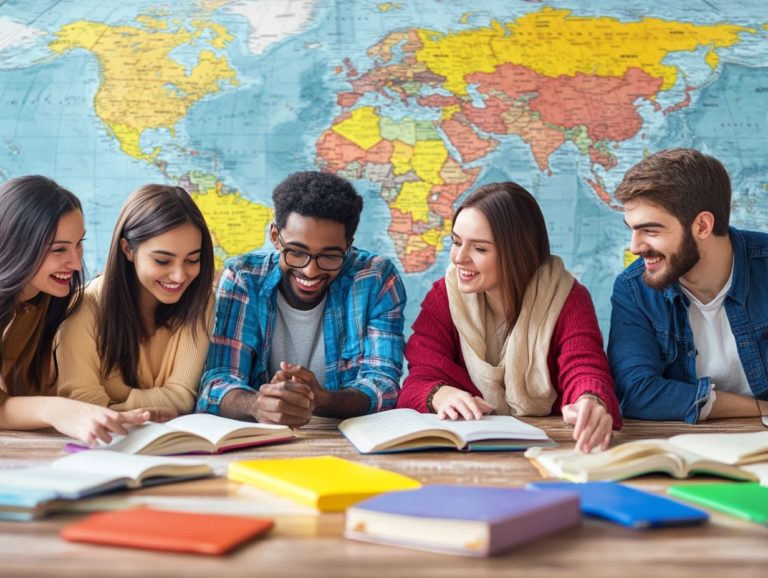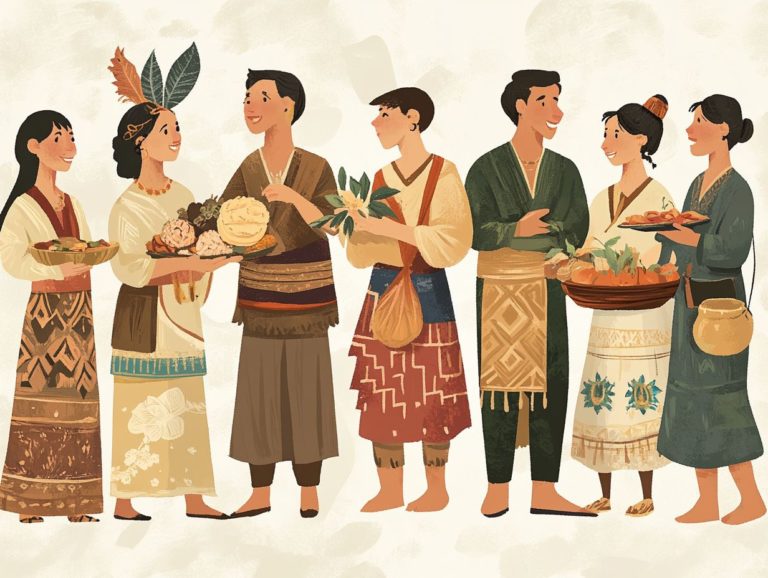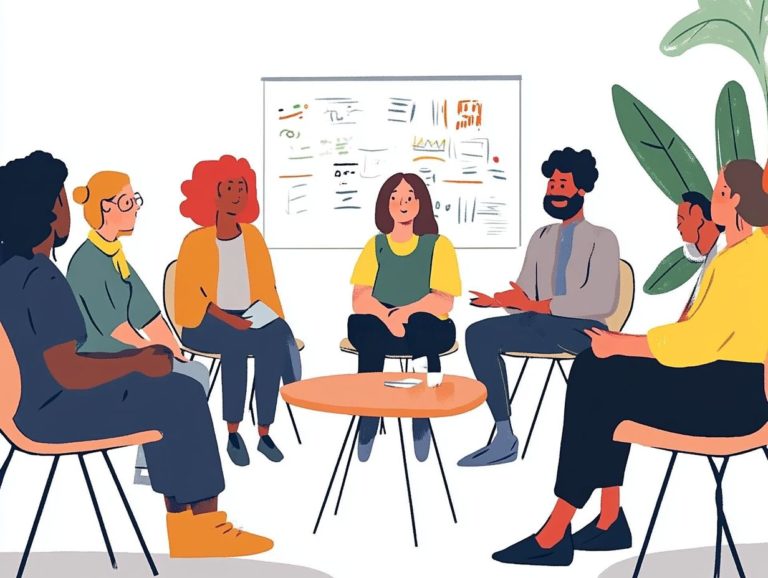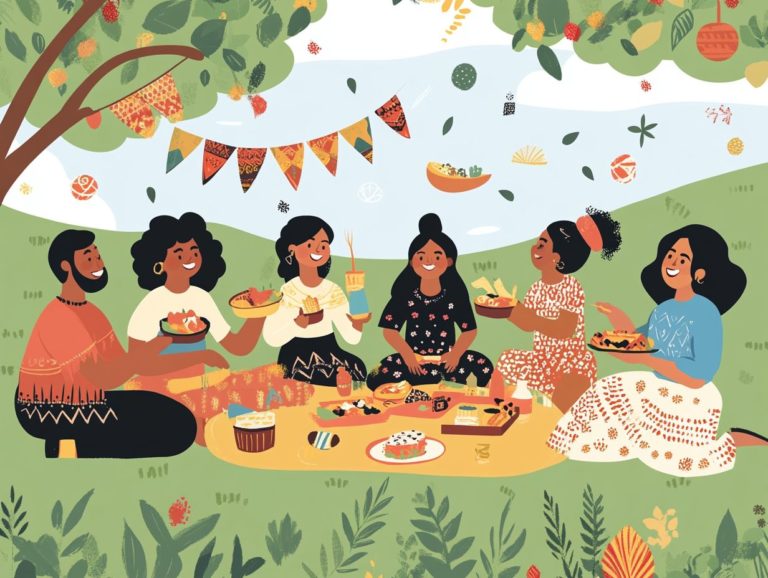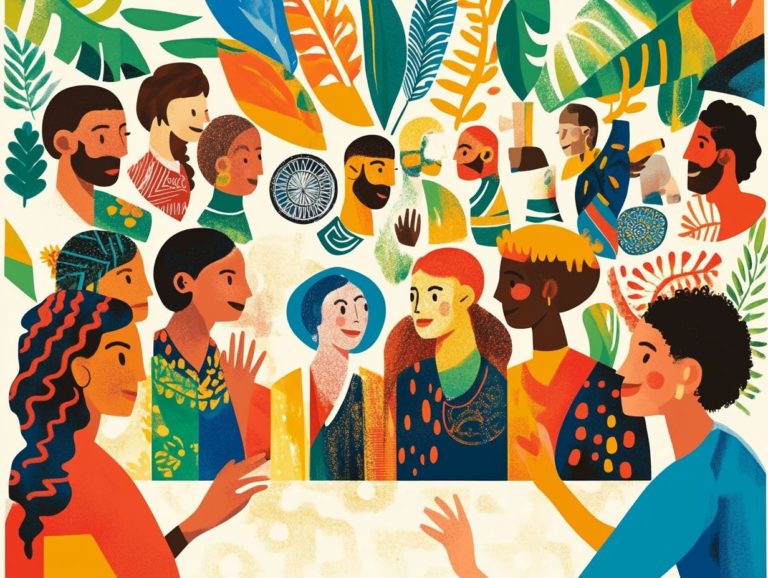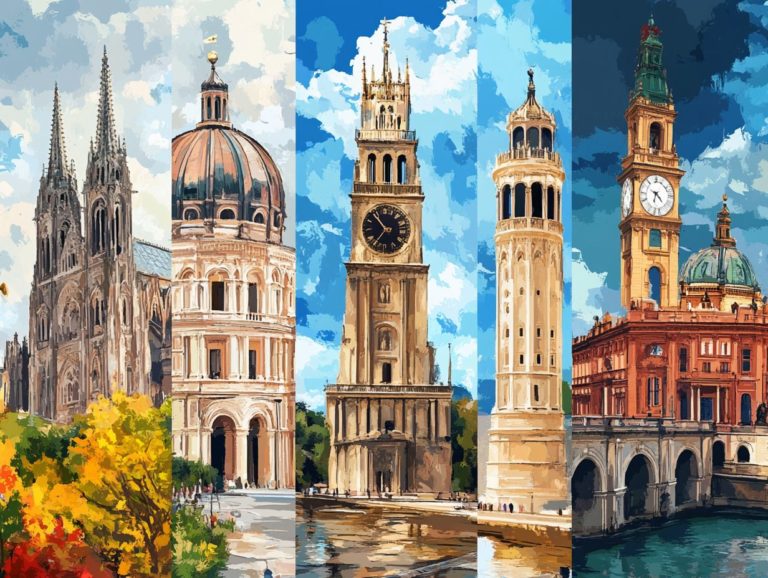How to Be a Cultural Ambassador in Your Host Country
Being a cultural ambassador in a new country is more than just an adventure; it s a chance for you to foster understanding and build bridges between diverse communities. Get ready to dive in!
This exploration delves into the essential aspects of this unique role, from grasping what it truly means to be a cultural ambassador to appreciating the significance of cultural exchange.
You ll discover practical steps for preparing yourself, connecting with locals, sharing your own traditions, and skillfully navigating the complexities of cultural differences.
Join in to uncover how you can enrich not only your own experience but also the lives of those around you.
Contents
- Key Takeaways:
- Understanding Your Role as a Cultural Ambassador
- Preparing for Your Role
- Building Relationships
- Representing Your Own Culture
- Handle Cultural Differences
- Frequently Asked Questions
- What does it mean to be a cultural ambassador in your host country?
- How can I prepare to be a cultural ambassador in my host country?
- What are some ways to promote cultural exchange as a cultural ambassador?
- How can I be respectful of my host country’s culture as a cultural ambassador?
- What are some challenges I may face as a cultural ambassador?
- What are the benefits of being a cultural ambassador in your host country?
Key Takeaways:
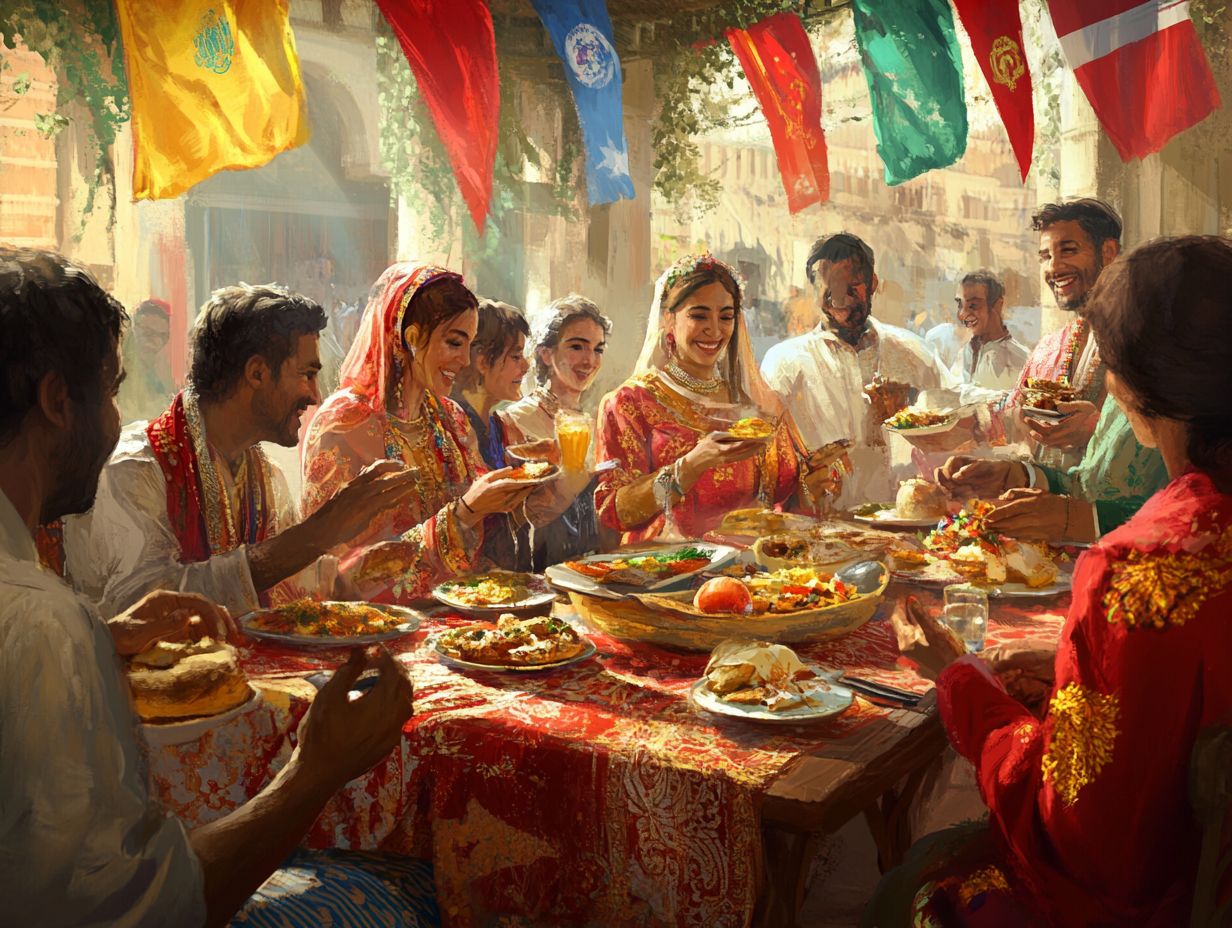
- As a cultural ambassador, understanding your role is important.
- Proper preparation includes researching the culture and customs.
- Respect local norms and share your traditions to avoid culture shock.
Understanding Your Role as a Cultural Ambassador
As a valued participant in the YES Alumni Grant program, it s essential for you to embrace your role as a cultural ambassador. This responsibility helps you build lasting connections with people from different cultures.
In doing so, you help yourself and the 50 youth you engage with, playing a pivotal part in cultivating a more diverse and inclusive society.
By sharing your insights about American culture while also learning from others, you become a knowledgeable friend to others and a change-maker within your local community.
What is a Cultural Ambassador?
A cultural ambassador is someone who represents their culture in a foreign setting, facilitating cultural exchange the sharing and learning about different cultures and communication through education and personal experiences.
This role transcends mere representation; it requires you to actively engage with others to promote understanding and appreciation of diverse traditions, values, and customs. By emphasizing peer-to-peer education, you create relatable narratives that break down barriers and foster dialogue among different groups.
The impact of cultural representation is profound, enabling individuals to look beyond stereotypes and gain deeper insights into the complexities of another culture. When you share your exchange experiences, you can spark curiosity and empathy, paving the way for enriched relationships and a more cohesive global community.
Importance of Cultural Exchange
Cultural exchange serves as an important way to help people understand each other among diverse communities, enriching both the host and home cultures engaged in the interaction.
Dynamic exchanges encourage appreciation of various customs, traditions, and perspectives, paving the way for meaningful advancements in civil rights. For instance, think about programs that bring together artists and activists from different backgrounds; they often spark innovative solutions to pressing societal issues. Take the annual ‘Cultural Bridges‘ festival, for example showcasing global music and art while amplifying voices that have historically been marginalized.
Through these exchanges, you not only gain insight into the intricacies of each other s experiences but also discover common ground, ultimately contributing to a more inclusive society.
Preparing for Your Role
To truly excel as a cultural ambassador, you must engage in thorough research and gain a deep understanding of both your own culture and the local customs of the community you intend to connect with especially if you are part of the YES Alumni Grant program.
This preparation is essential for fostering meaningful interactions and promoting cultural exchange.
Researching the Culture and Customs
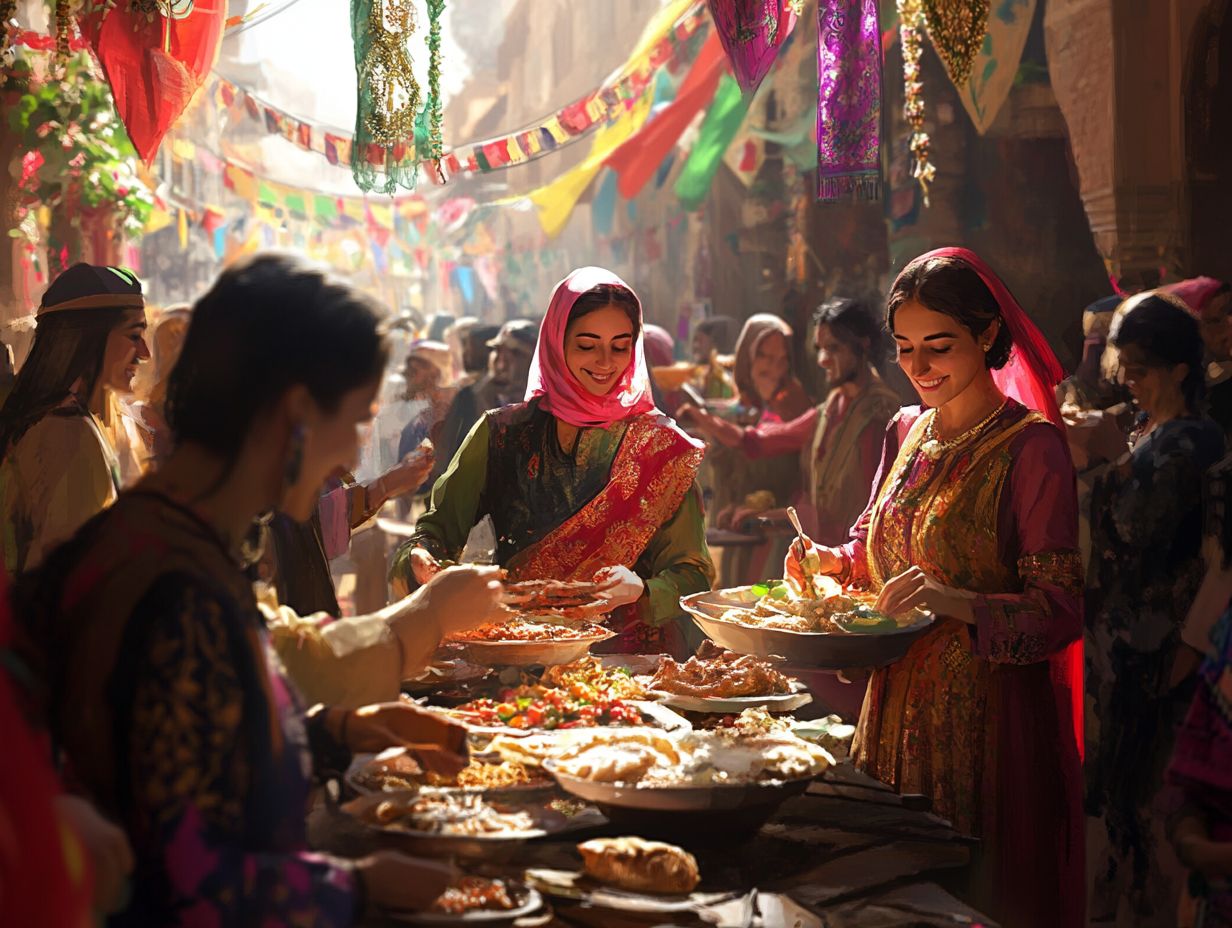
Researching local culture and customs is essential for you as a cultural representative. This knowledge helps you navigate social interactions and build meaningful relationships.
Explore online databases that catalog local traditions. Attend community-focused gatherings and engage in discussions with local residents. These techniques will deepen your understanding of the nuanced practices that define a place.
Join cultural events for firsthand experience. These gatherings foster connections and deepen your understanding of local values.
Learning the Language
Learning the local language boosts communication and builds strong ties with the community. It enriches your interactions and opens doors to new friendships.
This endeavor cultivates mutual respect and appreciation for diverse traditions and practices. By embracing language learning, you can dismantle societal barriers and significantly enhance your understanding of cultural nuances.
To facilitate this journey, leverage resources like language exchange programs, mobile apps, and online courses. Engage with local communities through immersive experiences such as volunteering or participating in cultural events to express yourself authentically.
Building Relationships
Building relationships as a cultural representative requires you to engage with locals and network with fellow expats. This creates a supportive community, enhancing cultural exchange for everyone involved.
Connecting with Locals
Connecting with locals is crucial for you; it fosters genuine exchanges that deepen your understanding of the host culture.
Immerse yourself in community activities like volunteer work, festivals, or local workshops. These experiences forge authentic connections that transcend superficial interactions.
For example, taking part in a traditional cooking class provides insights into local cuisine and paves the way for friendships with fellow participants and instructors. Such engagements lay the groundwork for deeper relationships.
Networking with Other Expats
Networking with other expats provides invaluable support and insights as you navigate your new surroundings. These connections often blossom into friendships that enrich your experience of living abroad.
Attend community gatherings, join online forums, or participate in local events to nurture these relationships. A simple introduction or shared interest can ignite meaningful dialogue.
Foster a sense of camaraderie to share resources and experiences. By doing so, you position yourself as an effective cultural representative, bridging the gap between your homeland and the new culture you embrace.
Join local events today and start building your network!
Representing Your Own Culture
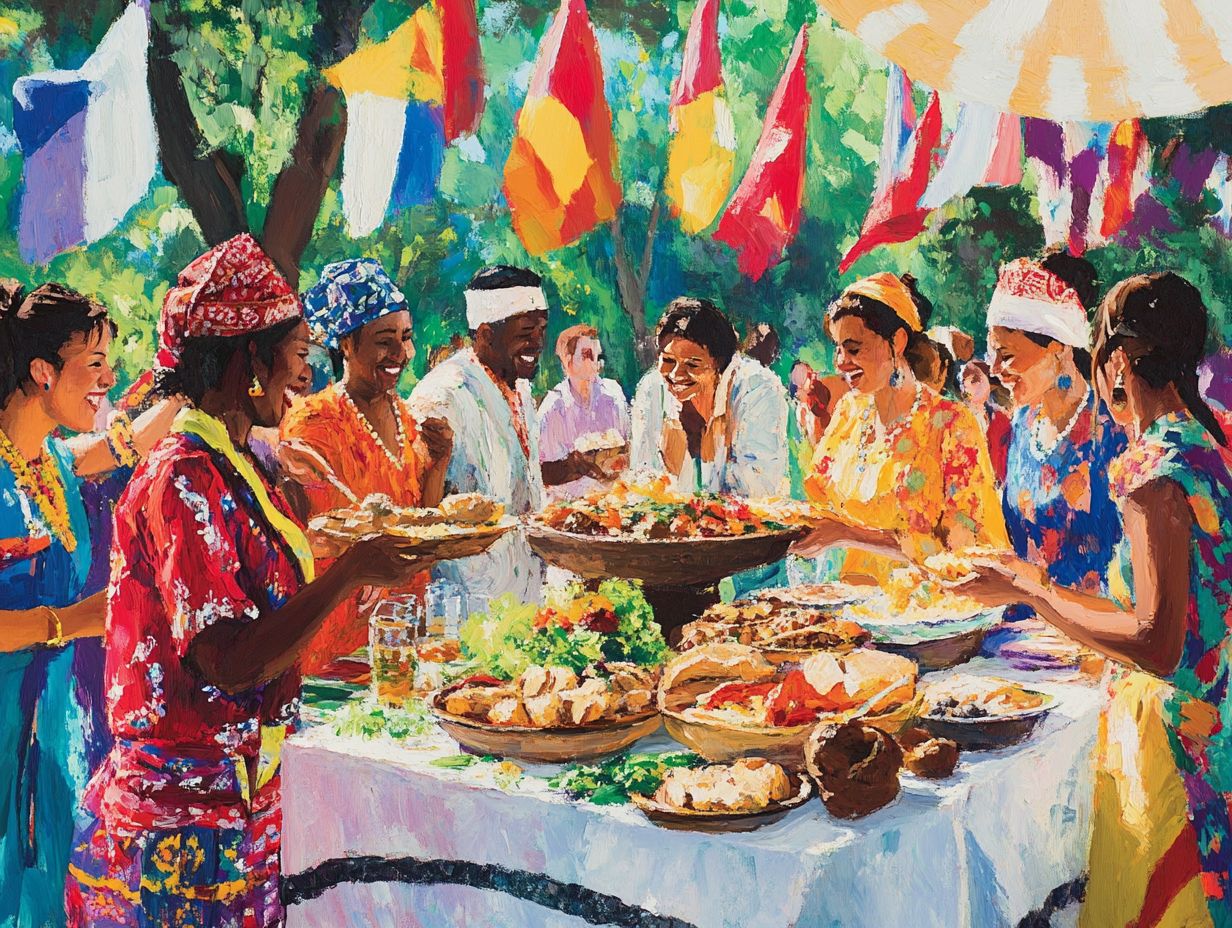
As a cultural representative, you have the unique opportunity to share your culture’s rich traditions and customs. This role also involves addressing stereotypes and misconceptions, allowing for a deeper understanding of your heritage.
Share your own traditions and customs! They are a vibrant way to connect with the local community and showcase the richness of your culture.
When you cook traditional dishes, you introduce unique flavors while sharing the stories behind each recipe. This ignites interest and curiosity in those around you. Participating in festivals creates vibrant community experiences where diverse groups come together to celebrate various traditions, fostering mutual appreciation.
Discussing historical customs encourages understanding and meaningful dialogue. These discussions challenge assumptions and bridge cultural gaps, enabling individuals from different backgrounds to connect on a personal level. Ultimately, this paves the way for a more inclusive and harmonious society.
Address Stereotypes and Misconceptions
Addressing stereotypes and misconceptions is vital for you as a cultural ambassador. It helps challenge prejudices and fosters a nuanced understanding of diverse cultures.
Engaging with these challenges allows for meaningful conversations that debunk myths. Common stereotypes oversimplify complex realities, causing individuals to overlook the deeper intricacies of different cultures. Use strategies like education, open dialogue, and personal storytelling to effectively counter these misconceptions and provide a platform for marginalized voices.
Civil rights play a crucial role in this mission, advocating for equality and recognition while fostering respectful discussions that dismantle harmful assumptions.
Handle Cultural Differences
Navigating cultural differences effectively is paramount for cultural ambassadors. It requires profound respect for local norms and the ability to adapt to diverse social contexts.
Respect and Adapt to Local Norms
Respecting and adapting to local norms is your fundamental responsibility as a cultural ambassador. This ensures that your interactions remain positive and culturally sensitive.
Understanding local customs like greetings, dining etiquette, and body language is essential for forging genuine connections. Some cultures favor indirect communication, while others prefer a more direct approach. Recognizing the importance of local traditions, whether vibrant celebrations or solemn observances, enhances your respect and fosters understanding.
Engage in active listening and show a genuine willingness to learn. This helps you navigate complexities with finesse, cultivating acceptance and building trust within the communities you represent.
Deal with Culture Shock
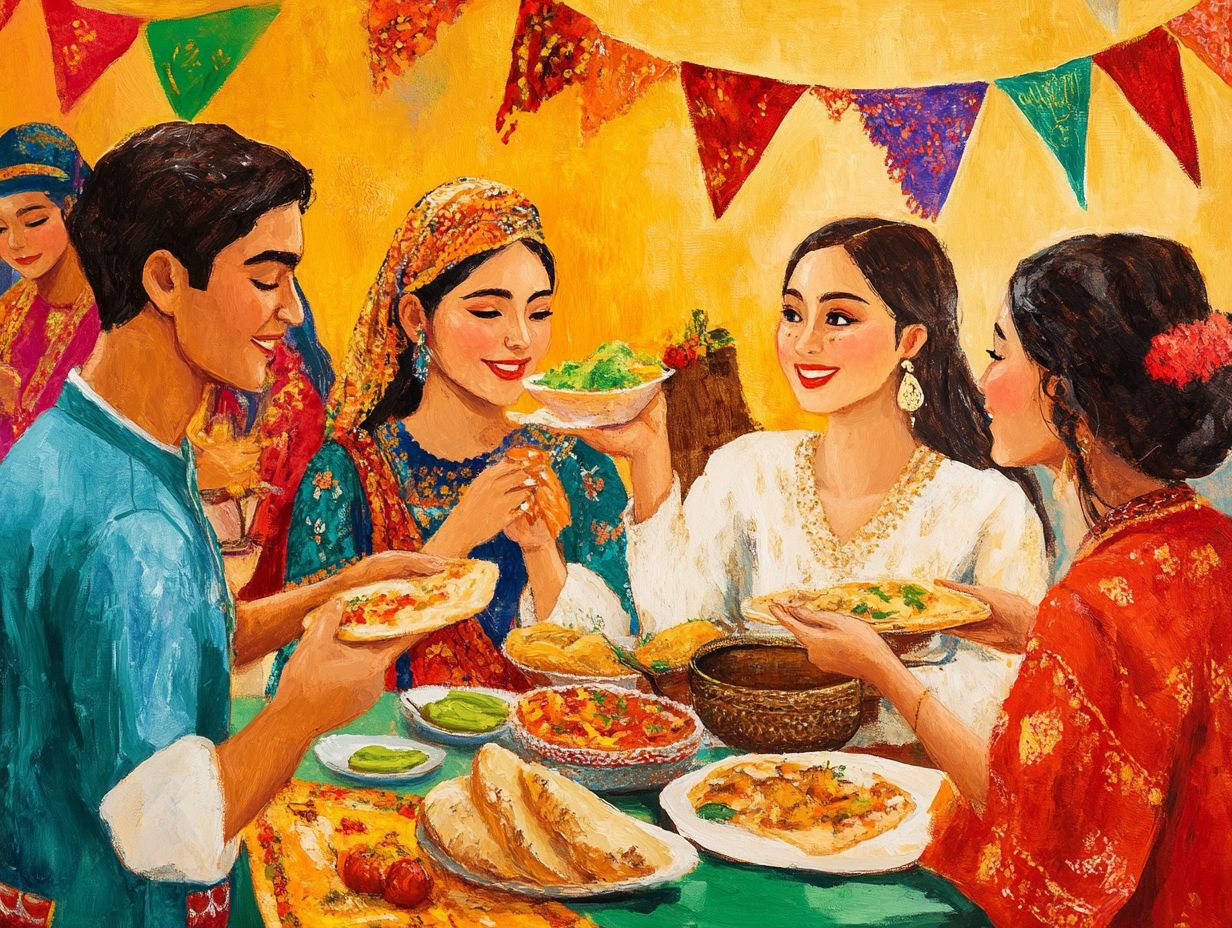
Dealing with culture shock is a common challenge for cultural ambassadors. It requires thoughtful strategies to adapt and thrive in a new environment.
Recognize the signs of culture shock, which may include feelings of frustration, anxiety, or isolation. Managing these emotions involves seeking support and connecting with others who have faced similar experiences. This can provide invaluable comfort and reassurance.
Maintain ties to your home culture through conversations, familiar foods, or cherished traditions. These can ground you amid change. Dive into local activities today! They are your gateway to new experiences that transform potential challenges into enriching moments that broaden your horizons.
Frequently Asked Questions
What does it mean to be a cultural ambassador in your host country?
Being a cultural ambassador means representing your home country and sharing its customs and values with others in your host country. To excel in this role, it’s important to understand how to be an effective cultural ambassador while also learning about and respecting the culture of your host country.
How can I prepare to be a cultural ambassador in my host country?
Research the culture, history, and customs of your host country. Learning basic phrases in the local language is also helpful.
What are some ways to promote cultural exchange as a cultural ambassador?
Participate in local events that celebrate your home culture. Engage in conversations with locals and share your experiences!
How can I be respectful of my host country’s culture as a cultural ambassador?
Dress appropriately and follow local customs. Listen and observe to respect their traditions.
What are some challenges I may face as a cultural ambassador?
You might encounter language barriers and cultural misunderstandings. Stay open-minded and adaptable to overcome these challenges.
What are the benefits of being a cultural ambassador in your host country?
Being a cultural ambassador helps you learn and appreciate a new culture. You’ll make meaningful connections and develop important skills, like finding cultural mentors while abroad and talking to people from different cultures.

